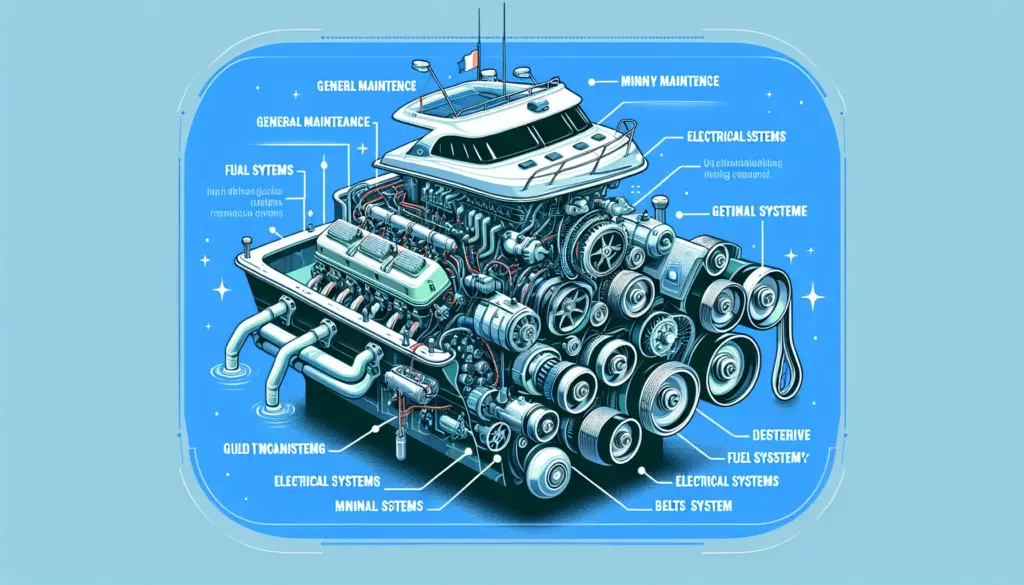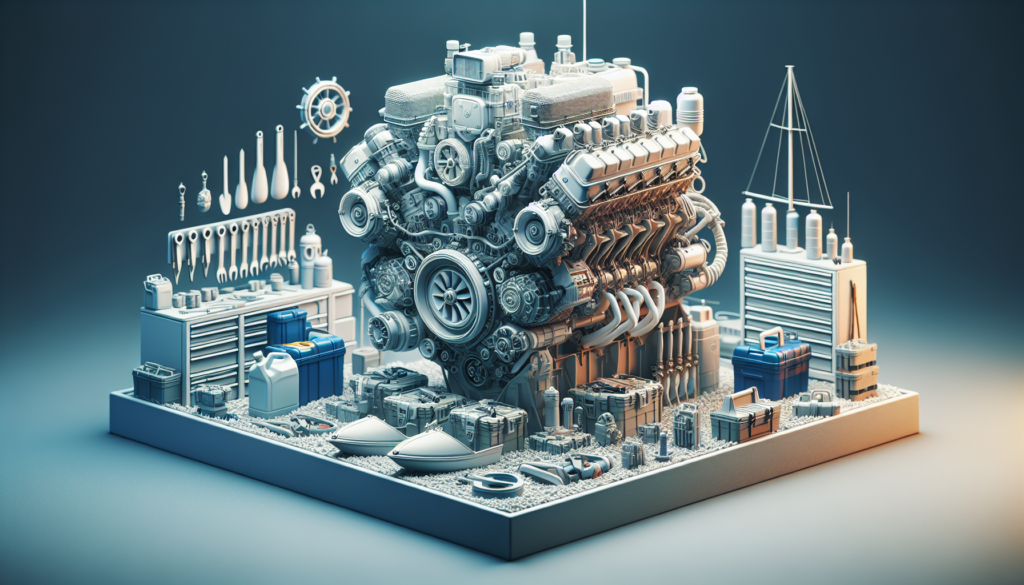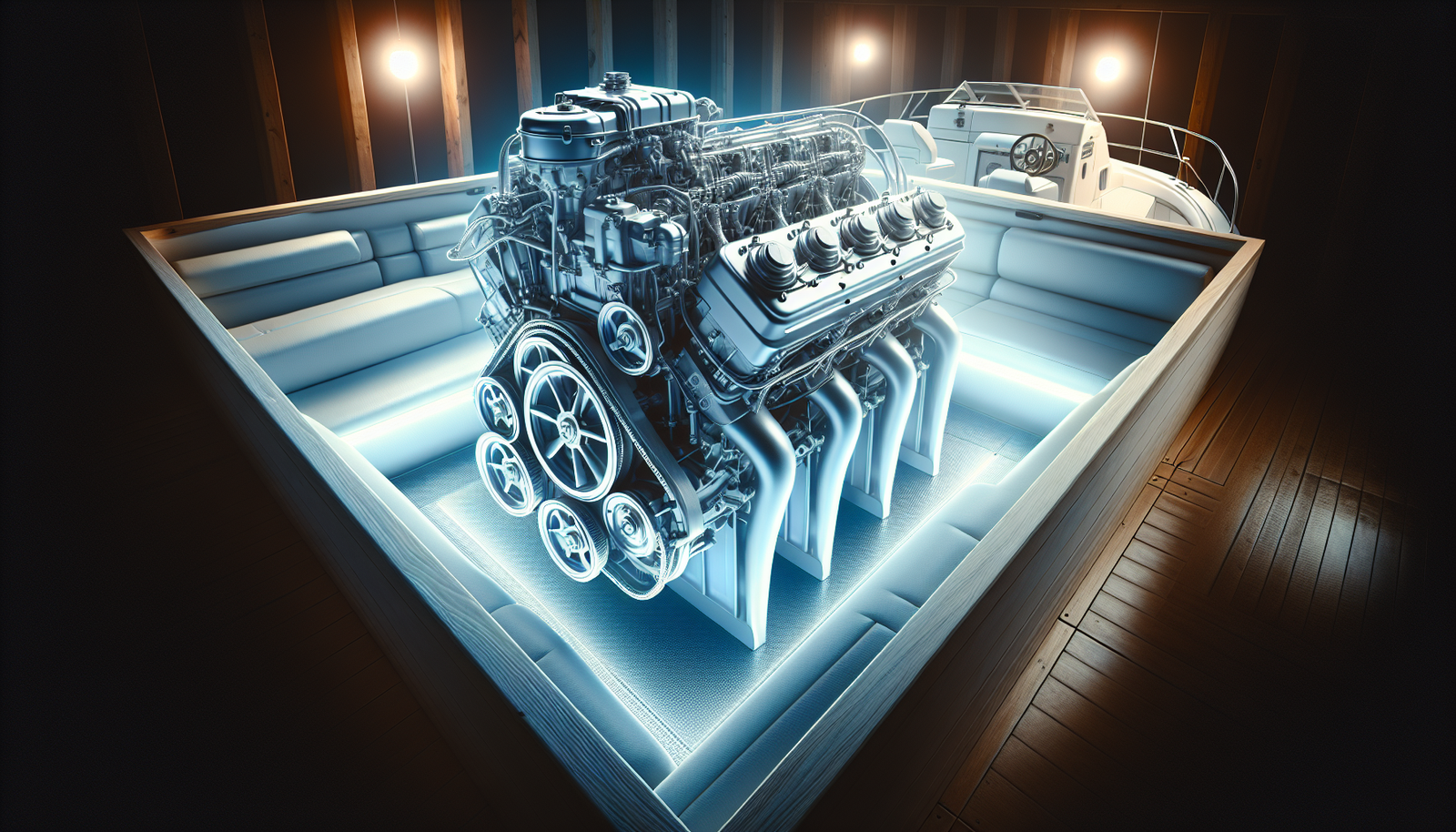Ready to hit the open waters but uncertain about your boat engine’s readiness? Don’t fret! “The Ultimate Checklist for Preparing Your Boat Engine for the Boating Season” is just what you need. This comprehensive guide provides a meticulous step-by-step inspection procedure that will help you ensure your engine’s peak performance ahead of the boating season. It considers everything, from simple maintenance tips to more complex engine checks so that you sail smoothly and safely. So, let’s set sail on this journey, as we aim to keep your boat engine in optimum shape.
Evaluate the Overall Condition of Your Boat
Before you take your boat out to explore the waters, it’s important to evaluate its overall condition. This crucial step will help to ensure that your marine adventure is safe and free from mechanical problems that could set a halt to your sailing plans.
Check Physical Structure for Damages
Start by taking a broad overview of the boat’s internal and external physical structure. Look closely for any signs of cracks, corrosion, leaks, or damages that could potentially weaken the structure. Make sure the deck and hull of the boat are still firmly together and the screws and joints are not loose.
Inspect the Hull and Bilge
Your boat’s hull and bilge are important areas to inspect for safety and performance reasons. The bilge, which is the lowermost section of a boat where the two sides meet, is crucial for maintaining stability. Check for any visible signs of damage, rust, or excessive water. Meanwhile, the hull should be inspected for any cracks, blisters, or distortions that could impact boat performance.
Ensure the Safety Gear is Up to Date
Safety should always be paramount when it comes to boating activities. Therefore, make certain that you have all the necessary safety equipment on board and that it’s up to date. This includes life jackets, fire extinguishers, and emergency flares.
Engine and Propeller Inspection
A well-maintained engine and propeller are essential for a smooth and safe boat ride. Therefore, detailed inspection and care for these crucial parts are of utmost importance.
Check the Engine Oil
The engine oil plays a very crucial role in the overall functioning of the boat’s engine. It ensures smooth performance by reducing friction among moving parts and preventing overheating.
Ensure the Engine’s Cooling System is Functioning
Further, ensure that the engine’s cooling system is functioning properly. A malfunctioning cooling system may lead to engine overheating, which could cause permanent damage.
Inspect the Spark Plugs
Inspecting the spark plugs is vital, as they play a key role in the ignition of the fuel-air mixture in the engine. Check for deposits, wear and tear, and gaps in the plugs to ensure all is as it should be.
Examine the Fuel System for Leaks or Damage
Examine the fuel system for any leaks or damage. A minor leak can lead to a major fire if left unattended.
Clean and Inspect the Propeller
Lastly, clean all dirt, weeds, and fish lines from the propeller and inspect it for dings, pitting, cracks, and distortion.

Battery Assessment
Power supply is central to a wide variety of functions on your boat. Without sufficient power, systems such as navigation, lighting, and electronics can fail, which can place you in a dangerous situation.
Check the Battery’s Charge Level
It’s recommended to check the battery’s charge level to make sure it’s in good shape before taking your boat out. Use a digital multimeter or a similar device to check this.
Inspect the Battery for Corrosion or Leaks
Corrosion or leaks can prevent the battery from operating at its peak level. Regularly inspect the battery for corrosion, cleaning it as necessary using a baking soda and water solution, and substitute the battery if leaks are observed.
Ensure Secure Battery Connections
Confirm the battery connections are secure and properly tightened.
Consider a Battery Replacement if Necessary
If the battery shows signs of wear and tear or is not holding a charge, consider a replacement. Note that batteries typically need replacing every three years.
Electrical System Review
The boat’s electrical system is crucial for powering all your boat accessories and navigation tools. It’s wise to review the whole system to ensure everything is functioning properly.
Inspect all Cables and Wiring
Inspect all cables and wiring for frays, corrosion, or any other signs of damage. Also, ensure that there are no exposed wires that can cause a short circuit.
Confirm All Lights are Working
Check all the lights on your boat, including deck and cabin lights. Replace any faulty bulbs and ensure the wiring and connections are in good order.
Test Equipment Such as Radios and GPS Systems
Test all the essential equipment such as radios and GPS systems to make sure they’re functioning properly. Malfunctioning equipment can compromise safety and negate some of the joys of boating.

Fuel System Check
Pre-emptive checks on your boat’s fuel system will save you from potential disaster on the water.
Inspect the Fuel Lines for Any Possible Leaks
Inspect the fuel system before heading out on the water. Look for signs of leaks, including pooling fuel and fuel odors. Leaks can be dangerous and have the potential to lead to a fire on board.
Ensure the Fuel Filters are Clean
Ensure that your fuel filters are clean of debris. Dirty, clogged filters can cause your boat to perform poorly and even harm the engine.
Check for Water in the Fuel
Pay special attention to the possibility of water in your fuel. Water in the fuel can cause engine knock and can even cause your engine to shut down.
Ensure Tank Ventilation Isn’t Blocked
Double-check to make sure your fuel tank ventilation is not blocked. Improper ventilation can lead to a build-up of toxic fumes that can be harmful to your engine, environment, and personal health.
Coolant System Overview
Your boat’s coolant system regulates the engine’s temperature to keep it from overheating. regularly maintaining it ensures the engine runs smoothly.
Inspect the Coolant Level
Keep your engine cool by maintaining the right level of coolant. Low coolant levels may cause engine overheating.
Check All Hoses for Potential Leaks or Damage
Inspect all coolant hoses for any potential leaks or damage. Leaking or damaged hoses can lead to coolant loss and damage your engine.
Confirm Proper Thermostat Operation
It’s essential to confirm that the thermostat, which regulates the volume of coolant flowing through the engine, is operating properly.

Test Run and Tune-Up
Before you set sail, practice some basic runs to ensure everything is working as it should.
Start Up the Engine and Listen for Unusual Sounds
Listen closely as you start up the engine. Unusual or erratic sounds might indicate potential issues that need to be resolved.
Confirm Engine Reaches Appropriate RPM
Check the engine RPM. After starting up, your boat’s engine should reach the manufacturer’s recommended RPM.
Perform a Tune-Up if Necessary
If you observe any inconsistencies or problems during your test run, consider performing a tune-up. This will help to keep your engine in good condition and extend its lifespan.
Clean and Protect
Just as it’s prudent to prepare the boat for its journey on the water, taking steps to clean and protect it after use will ensure longevity and reliability.
Clean the Boat Thoroughly
Remove dirt, salt, and grime that collected on your boat. Grime and salt in particular can cause rust and other long-term damage.
Protect the Engine and Other Metallic Parts from Rust
Treat your boat’s engine and other metallic parts with anti-rusting agents. Rust can shorten the lifespan of these components and make your boat unsafe for use.

Overboard Safety Equipment Review
You can never be too prepared when it comes to safety on the water. Making sure your safety equipment is in good working order could save lives if the unthinkable occurs.
Confirm Presence of Life Jackets
Ensure that there are enough life jackets for everyone on board and that they’re in good working order.
Test the Functionality of Flares
Test your emergency flares. This is essential equipment in case you need to signal for help.
Ensure First Aid Kit is Stocked and Up to Date
Make sure your first aid kit is well-stocked and all the medicines are within their expiration dates. Boating can lead to minor injuries and it’s best to be prepared.
Boat Documentation
Before you start your voyage, you should confirm that all your boat documentation is in order.
Confirm Up-to-Date Registration
Ensure your boat’s registration is current. Failure to keep your registration up-to-date can result in fines or penalties.
Check Boat Insurance Documentation
Check your boat insurance documents, to ensure the validity and coverage align with your usage.
Ensure Boating License and Other Permits are Current
Aside from ensuring your license and permits are up-to-date, also make sure you have them on-board. Some places may require you to show them before you can legally set off.
As you prepare your boat for the season, take time to work through this checklist diligently. It will not only safeguard you and your passengers, but it will also ensure your boat remains in good condition for many seasons to come.

